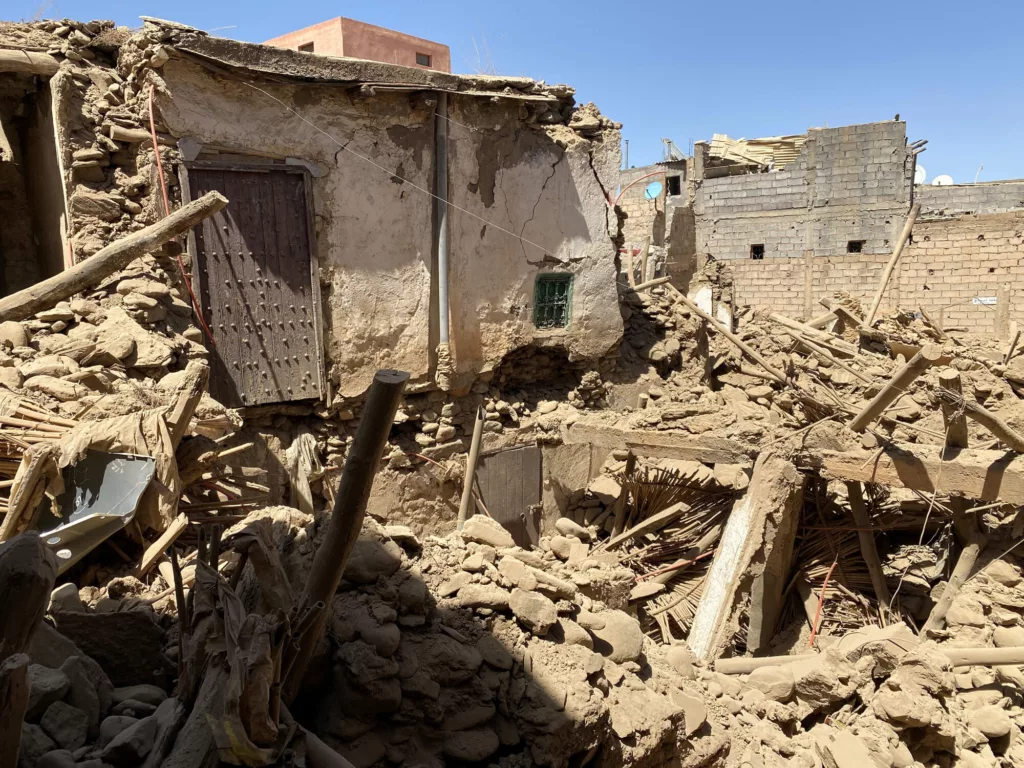
Earthquake in Morocco
Late on Friday, September 8, 2023, a 6.8-magnitude struck a mountainous region of central Morocco, about 45 miles southwest of the historic city of Marrakech. The quake was followed by a series of powerful aftershocks.
Almost 3,000 people have been killed, thousands have been injured and tens of thousands have lost their homes. These numbers will likely rise as search-and-rescue efforts continue. Infrastructure—including power, water and, importantly, healthcare facilities—have been extensively damaged.
International Medical Corps immediately sent an Advance Emergency Medical Team to perform an assessment, and is working with local authorities and partners to coordinate response efforts in the areas affected by the quakes. We already have helped to distribute thousands of food and non-food items, including blankets and hygiene items, and are providing healthcare services through mobile medical units.
Our Response to the Earthquake in Morocco

The devastating earthquake that hit 45 miles southwest of Marrakech on September 8 has upended the lives of everyone in the surrounding area, and presented challenges to providing humanitarian aid. For example, road blockages caused by the earthquake constrain the delivery of aid, as does the risk of landslides in challenging and mountainous terrain. Moroccan authorities are working quickly to remove blockages but last-mile efforts to reach remote villages remain difficult.
After the quake struck, International Medical Corps immediately deployed an Emergency Response Team (ERT) to coordinate response efforts in-country with local authorities and other humanitarian organizations. We are working with nonprofit organizations with an operational presence in Morocco to rapidly alleviate the suffering of earthquake survivors and support the recovery and reconstruction of affected areas.
Our efforts include providing hot meals and emergency supplies, including ready-to-eat foods such as canned fish, dates, milk and cheese; hygiene supplies such as toothpaste, soap and sponges; and blankets and mattresses.
We also are providing mobile health and mental health services in remote and hard-to-reach areas, especially among those who have been displaced by this disaster, through mobile medical units. Finally, we are focusing on providing clean water and modern hygiene services to help prevent the spread of disease among displaced families who may be crowded together in temporary shelters.